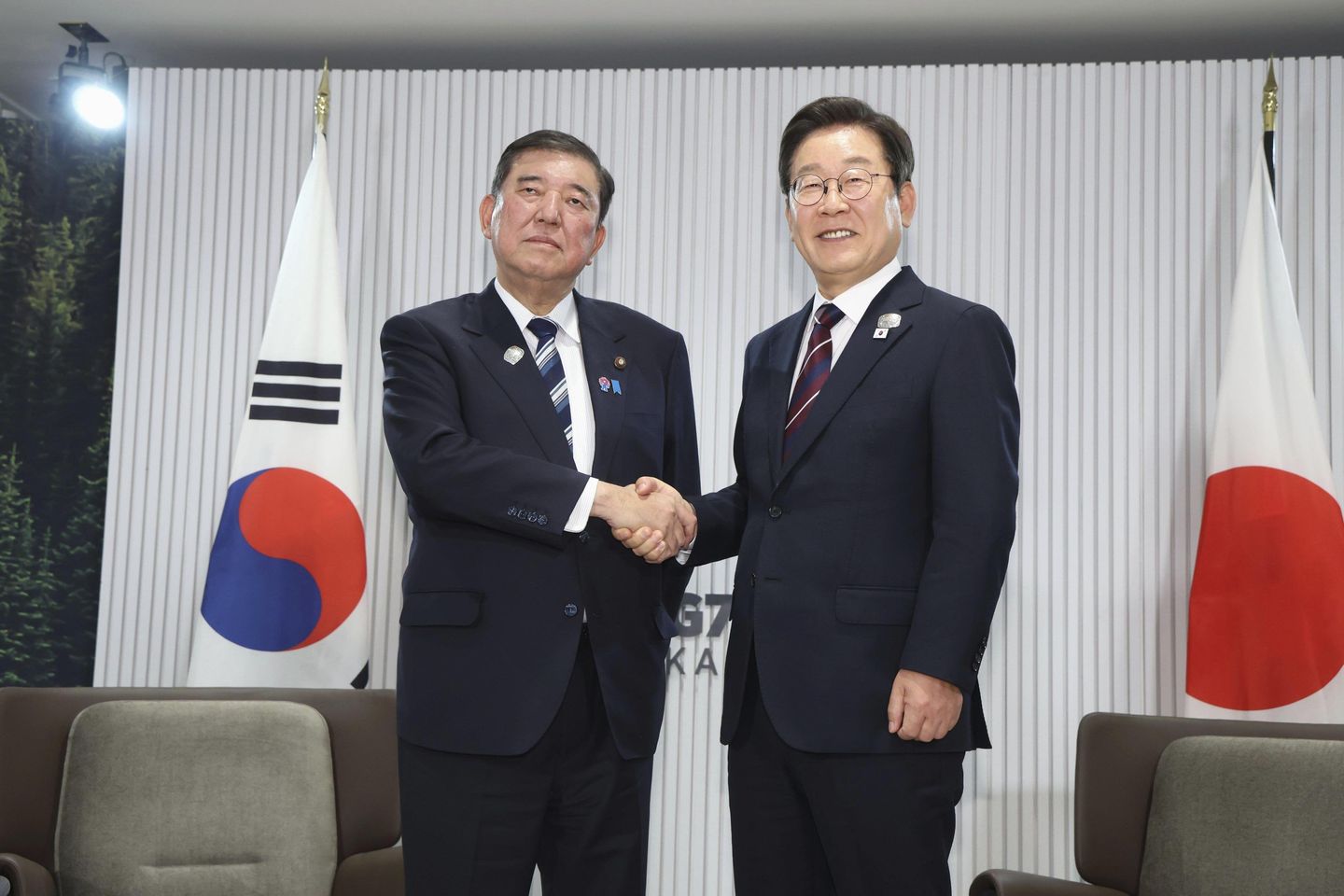
SEOUL, South Korea — Japanese Prime Minister Shigeru Ishiba said Tuesday it is “truly regrettable” that the U.S. will impose a 25% tariff on its exports beginning Aug. 1, but the Trump administration is encouraging progress in trade negotiations.
Tokyo will “actively seek the chance of an agreement that benefits both countries, while protecting Japan’s national interest,” Mr. Ishiba told Cabinet ministers, according to the Reuters news agency.
Meanwhile, a key aide to South Korean President Lee Jae-myung said the three-week period before the 25% U.S. tariff takes effect gives Seoul “time to respond” to President Trump’s demands for equitable trade.
Presidential Chief of Staff for Policy Kim Yong-beom stressed Tuesday to trade negotiators that “national interest is the top priority.”
Japan and South Korea, both key U.S. allies in the Indo-Pacific, received letters sent Monday by the Trump administration notifying them of the imminent levies against the products they export to American markets. They and other U.S. trading partners had been bracing for Mr. Trump’s nation-by-nation tariffs that were announced in April, then paused for 90 days.
In addition to Japan and South Korea, the U.S. sent letters announcing 25% to 40% tariffs on Aug. 1 to Bangladesh, Bosnia-Herzegovina, Cambodia, Indonesia, Kazakhstan, Laos, Malaysia, Myanmar, Serbia, South Africa, Thailand and Tunisia.
SEE ALSO: Trump hits South Korea, Japan and others with 25% tariffs
“Please understand that these Tariffs are necessary to correct the many years of [Japanese and Korean] Tariffs and Non-Tariff Policies and Trade Barriers, causing these unsustainable Trade Deficits with the United States,” Mr. Trump said in the letters. “This Deficit is a major threat to our economy, and, indeed, our National Security!”
“We have received a proposal from the United States to swiftly proceed with negotiations towards the newly set August 1 deadline, and that depending on Japan’s response, the content of [Mr. Trump’s] letter could be revised,” Mr. Ishiba told Cabinet ministers on Tuesday.
Japan is in Mr. Trump’s crosshairs. In recent days, he has taken aim at autos, a sector in which Japan enjoys a massive trade surplus with the U.S., and rice — a protected and sensitive commodity for the country.
The Japanese prime minister’s chief trade negotiator already has made seven trips to the U.S. to talk tariffs, as Mr. Ishiba, who is facing an upper-house election on July 20, is under pressure not to appear weak.
Conversely, South Korea’s government, which took office in June after a six-month policy vacuum triggered by ex-President Yoon Suk Yeol’s martial law declaration and impeachment, is much newer to tariff negotiations than Tokyo.
Seoul is fearful of tariffs on steel and automobiles, while the U.S. side is asking for nontariff barriers on digital services and beef imports to be lifted.
Mr. Lee has deployed a key aide to Washington — National Security Adviser Wi Sung-lac — alongside Trade Minister Yeo Han-koo. On Monday, Mr. Wi asked Secretary of State Marco Rubio to enable a bilateral summit between Mr. Lee and Mr. Trump. The two presidents have not yet met.
Mr. Wi also urged tariff negotiations to take place “in the spirit of the alliance.
While tariff fears have jolted Seoul and Tokyo, both can draw comfort in their importance to the U.S. economy.
Japan is the largest single cumulative investor in the United States and is the largest holder of U.S debt. South Korea is a key player in the U.S. supply chain, including in such strategic sectors as shipbuilding and semiconductor manufacturing.
What’s more, both nations are positioned to deter China, North Korea and Russia in the Indo-Pacific, provide key bases for U.S. troops and represent the first echelons in the cross-Pacific defense of the continental U.S.
Media outlets in both countries headlined their front-page articles on the news with the possibility of another deadline extension.
“Is Trump’s tariff negotiation a paper tiger? Deadline extended despite dissatisfaction with Japan,” asked Japan’s Asahi Shinbum.
“Trump: ‘If you make a proposal we like, we can adjust the August 1 tariff date,’’’ wrote Korea’s Chosun Ilbo.
Asia market watchers anticipate further delays.
If deals are not sealed by Aug. 1, “We believe the most likely outcome then is a further deadline extension,” wrote BMI, a unit of financial analytical firm Fitch Group, in a report sent to journalists. “Indeed, our global team believes the US is willing to extend deadlines to as late as October.”
Subsequently, Washington may remove the gloves.
“Further extensions beyond that are a tricky proposition,” the BMI report continued. “The White House will have much less capacity to negotiate, given that campaigning will start to pick up for the US mid-term elections in November 2026.”
Meanwhile, U.S. trade deals with China and India are pending. Other Asia nations lack leverage.
Indonesia and Thailand are reportedly planning to cut their tariffs on U.S. products. Bangladesh is preparing to send a delegation to Washington, with aims to cut its tariffs on U.S. products and buy U.S. aircraft, cereals and energy.
The strategies of other Asian nations such as Cambodia, Laos, Malaysia and Myanmar are less clear.












